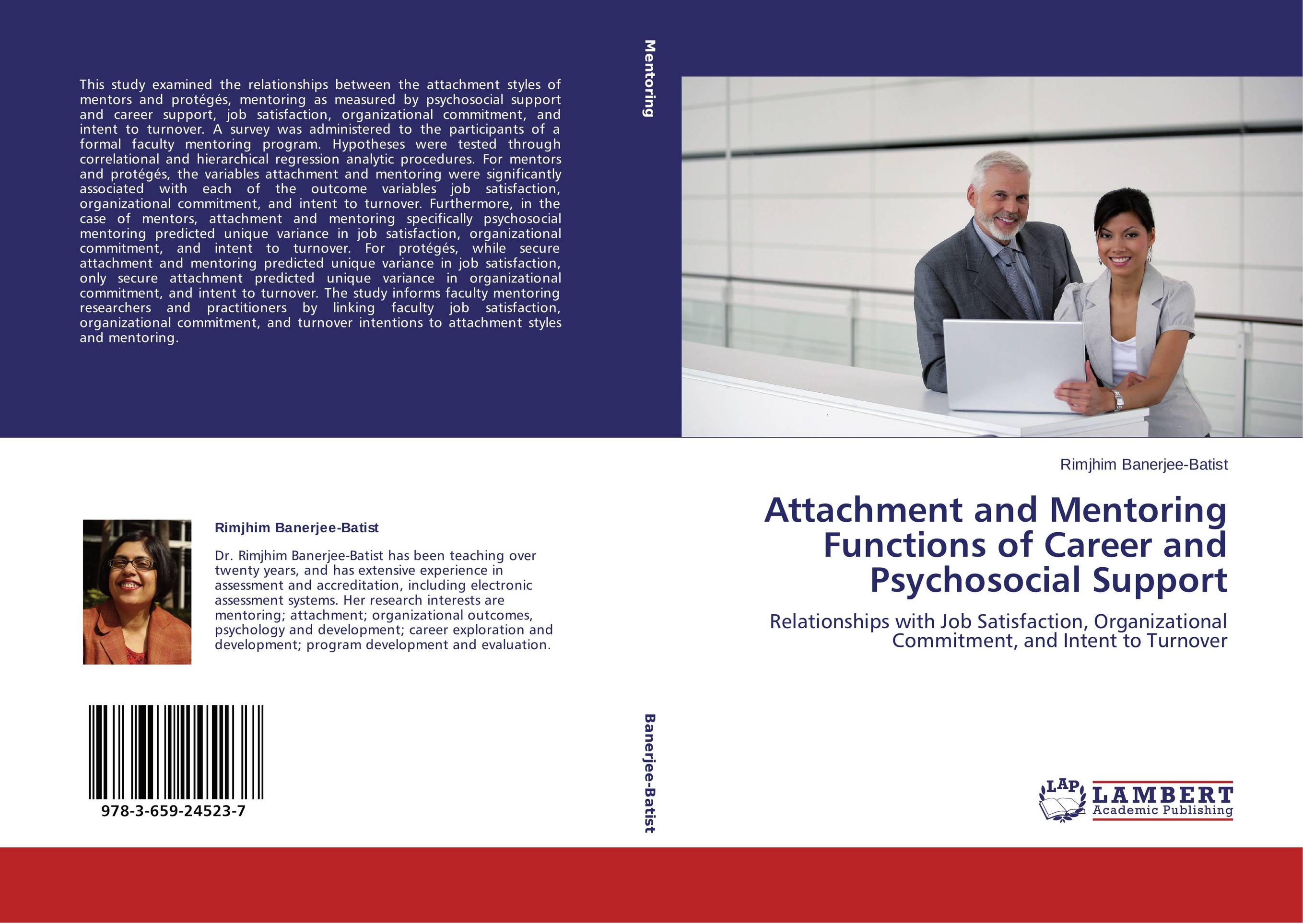| Поиск по каталогу |
|
(строгое соответствие)
|
- Профессиональная
- Научно-популярная
- Художественная
- Публицистика
- Детская
- Искусство
- Хобби, семья, дом
- Спорт
- Путеводители
- Блокноты, тетради, открытки
Attachment and Mentoring Functions of Career and Psychosocial Support. Relationships with Job Satisfaction, Organizational Commitment, and Intent to Turnover

В наличии
| Местонахождение: Алматы | Состояние экземпляра: новый |

Бумажная
версия
версия
Автор: Rimjhim Banerjee-Batist
ISBN: 9783659245237
Год издания: 2014
Формат книги: 60×90/16 (145×215 мм)
Количество страниц: 240
Издательство: LAP LAMBERT Academic Publishing
Цена: 50927 тг
Положить в корзину
Позиции в рубрикаторе
Сферы деятельности:Код товара: 138589
| Способы доставки в город Алматы * комплектация (срок до отгрузки) не более 2 рабочих дней |
| Самовывоз из города Алматы (пункты самовывоза партнёра CDEK) |
| Курьерская доставка CDEK из города Москва |
| Доставка Почтой России из города Москва |
Аннотация: This study examined the relationships between the attachment styles of mentors and prot?g?s, mentoring as measured by psychosocial support and career support, job satisfaction, organizational commitment, and intent to turnover. A survey was administered to the participants of a formal faculty mentoring program. Hypotheses were tested through correlational and hierarchical regression analytic procedures. For mentors and prot?g?s, the variables attachment and mentoring were significantly associated with each of the outcome variables job satisfaction, organizational commitment, and intent to turnover. Furthermore, in the case of mentors, attachment and mentoring specifically psychosocial mentoring predicted unique variance in job satisfaction, organizational commitment, and intent to turnover. For prot?g?s, while secure attachment and mentoring predicted unique variance in job satisfaction, only secure attachment predicted unique variance in organizational commitment, and intent to turnover. The study informs faculty mentoring researchers and practitioners by linking faculty job satisfaction, organizational commitment, and turnover intentions to attachment styles and mentoring.
Ключевые слова: Faculty Development, mentoring, attachment



